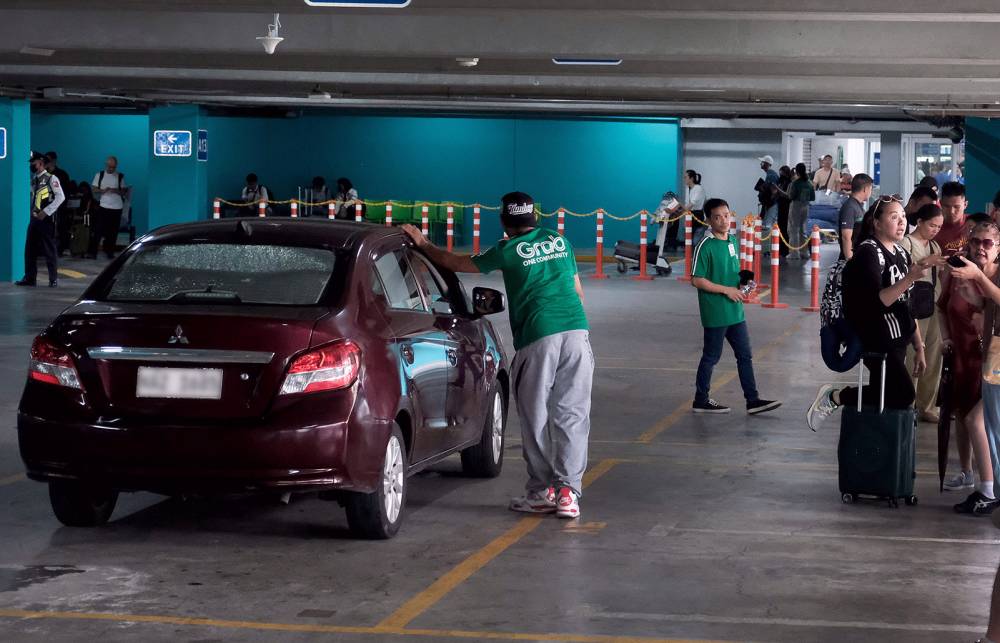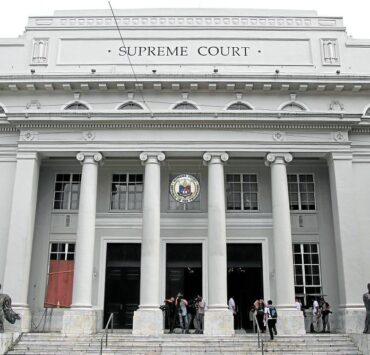LTFRB open to reviewing matrix for ride services

The Land Transportation Franchising and Regulatory Board (LTFRB) is “open” to studying the proposal to increase the fares of transport network vehicle services (TNVS), or ride-hailing services.
But LTFRB Chair Teofilo Guadiz III said any adjustment should also consider the impact on commuters in addition to operators and drivers.
“As we recognize the need for our TNVS operators and drivers to have fair earnings, it is also important to ensure that passengers can afford the fare,” Guadiz said in a statement over the weekend.
The proposal includes an increase in the minimum fare to P150 on short-distance trips booked on ride-hailing apps.
He added the LTFRB is currently reviewing the current fare policies for TNVS “to balance the interests of drivers, operators and commuters while ensuring a fair and transparent ride-hailing system.”
He stressed the regulator is considering factors like rising fuel costs, inflation and the potential impact on commuters in its review process.
The United Transportation Coalition of the Philippines (UTCP) earlier asked the LTFRB to make adjustments on the current fare rates of TNVS amid the rising fuel prices.
“The current fare matrix has not been amended to reflect the economic realities, causing TNVS drivers and operators to suffer financially,” the group said.
“Considering such imposition, TNVS drivers and operators will have guaranteed earnings regardless of the distance traveled in order to provide services to the consuming public,” the group added.
It also asked the LTFRB to implement a policy allowing “the flexibility of the fare rates,” which shall adjust fares based on multiple factors, such as fluctuations in fuel prices.
The current fare matrix implemented by TNVS companies, including Grab, InDrive and Joyride, was last updated six years ago under LTFRB issued Memorandum Circular No. 2019-036.
The final fare charged to its passengers is computed based on the total of flag-down rate, distance and time traveled, as well as surge fees.
For sedan type, the minimum fare is at P45, while for AUV (asian utility vehicle) and SUV (sport utility vehicle) types the rate is P55.
Sedans charge an additional of P15 per kilometer of travel, while for AUVs and SUVs’ it is at P18/km.
In addition, companies charge a P2 per minute of travel regardless of car-type. The current policy also allows TNVS to impose a surge fee of up to two times of the combined amount of fare for the distance and length of time of travel.
UTCP also asked the LTFRB to enforce a fixed minimum fare of up to P150 for booked trips below 3 kilometers to address the complaints of customers about long waiting times and drivers canceling short-distance trips.
“The current fare matrix system does not take into account the operational losses incurred by drivers for trips under 3 km. The lack of a fixed minimum fare for such short journeys has resulted in prevalent cancellations by drivers, thereby inconveniencing passengers and impacting the quality of service,” it said.
Data-driven adjustment
In response, Guadiz said the LTFRB is “open” to studying proposals for a fixed minimum fare, but “any adjustment must be data-driven and not rushed.”
He reminded the TNVS drivers they must honor confirmed bookings, as frequent cancellations disrupt the commuter experience and could prompt regulatory action.
According to the LTFRB chair, any fare adjustment must undergo a thorough evaluation to make certain they reflect economic realities, while preventing unjustified fare hikes that could burden the riding public.
Guadiz insisted the LTFRB has not been negligent in reviewing fare structures and continues to monitor fuel price fluctuations and operational costs.
“It is not true that the LTFRB is not doing anything. We continue to review our fare matrix to ensure that it is fair and just for everyone,” he said.
Minimum fare for jeepneys
Meanwhile, the LTFRB will also hear the pending petition to increase the minimum fare for jeepneys from the current P13 to P15 on Feb. 19.
In October 2023, the LTFRB approved a P1 provisional increase in the minimum fare for public utility jeepneys, adjusting the fare from P12 to P13 for traditional jeepneys and from P14 to P15 for modern jeepneys.
“We understand the challenges faced by our drivers and operators due to rising fuel prices and the increasing cost of living. While we remain committed to ensuring their livelihood is sustainable, we must also carefully balance this with the welfare of commuters who are equally affected by the current economic conditions,” the regulator said.

















